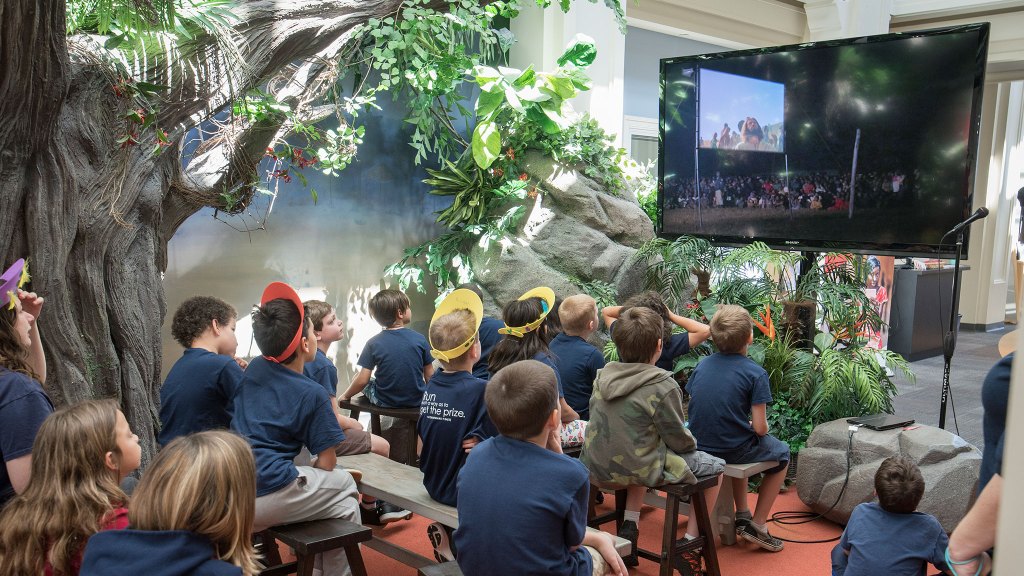It’s harder than ever to monitor everything your kids see on television, the internet or any other platform. So, being able to help them navigate what they see and discern what they should avoid is an essential aspect of parenting. For Christian parents, it’s vital that these conversations also include discussions about values and faith.
Here are some tips for talking to your kids about what they’re watching.
1. Open lines of non-judgmental communication
Start by creating an atmosphere of open and non-judgmental communication. Let your children know they can talk to you about anything they’re watching or experiencing without fear of punishment or criticism. The number one fear that keeps kids from being transparent about the things they encounter in the wild is that you’re going to think they’re bad or you’re going to punish them.
When they feel like they can come to you, it encourages them to be honest with you.
2. Understand their interests
Take an interest in what your children are watching and what they talk about with their friends. Watch some of their shows or content with them to understand their interests better. This will allow you to have informed discussions about what they enjoy and what they might need to avoid. And when you show an interest in the things that they like, it really builds rapport.
3. Set age-appropriate boundaries
Spend some time determining age-appropriate guidelines for what your children can watch. Use content ratings and parental controls to help enforce these boundaries. Be extremely clear about the rules and consequences for breaking them.
4. Reinforce your Christian values
Consistently encourage conversation around your family’s Christian values and beliefs. Explain how these values align with or differ from what they see in certain content. Encourage them to think critically about the media they consume and how it may impact their values. And remember, it’s important to have this conversation multiple times to help foster this kind of thinking when interacting with media. This won’t be learned overnight.
Many TV shows and movies present moral and ethical dilemmas. Use these as opportunities to engage in meaningful conversations about right and wrong, empathy, and Christian perspectives.
5. Teach kids media literacy
Children need to develop media literacy skills because it won’t happen independently. This literacy enables them to evaluate content critically through the lens of misinformation. Spend time talking about how media can be used to persuade or manipulate and how to recognize bias or misleading information.
6. Encourage Bible study and pray together
Dialogue about Scriptural admonitions should be part of your discussions. Teach them to apply biblical stories and principles to real-life situations and the content they consume.
You can’t constantly monitor everything your kids are exposed to, so praying together as a family is critical. You can pray for discernment, wisdom and guidance in their choices and understanding of media.
7. Don’t forget that you’re a role model
Children often learn more from what they see you do rather than what you say. It can be challenging for kids to take the discussion seriously if you demonstrate a lack of discernment in your own viewing habits. So be a positive role model in your media choices and behavior by being the example you want them to follow.
8. Keep your ear on the pulse of new trends
Stay informed about new trends and technologies in media. The digital landscape is constantly changing, and it’s important to know what your children can access. You don’t have to be afraid of every new trend, but it is crucial that you can have thoughtful and reasonable discussions about things shaping your children’s world.
Approach your kids in the best way for them
Remember that every child is unique, and your approach may need to be adapted based on age, maturity level, and individual needs. Ultimately, the goal is to guide your children in making informed, values-based choices about the media they consume while nurturing their faith and moral development.
If you’re looking for inspiring Christian content for your younger children, check out the following offerings from Jesus Film Project®:
- The Story of Jesus for Children
Experience the gospel story through the eyes of first-century children. - StoryClubs
Kids Around the World has partnered with the Jesus Film to introduce StoryClub Lessons. These Bible lessons allow children to become eye-witnesses and active participants in God’s Story, not just distant observers. - File Zero
This animated series is about a band of hackers searching for truth and meaning in a post-apocalyptic world. Their journey takes them to a place they never would have imagined that was long hidden by an evil dictator intent on keeping control.
